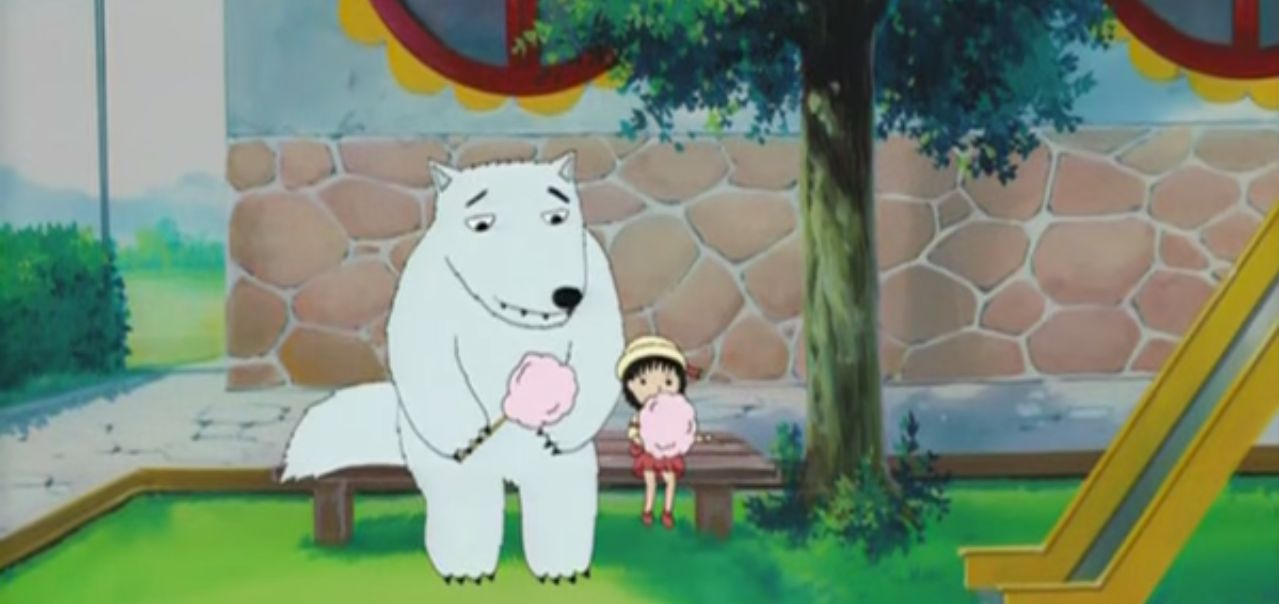We Like Shorts, Shorts is a new column in which we single out impressive short films which are easily accessible online. The full shorts will always be embedded in the articles for easy access.
Outside the oddly plagued trend of South Korean animation stand the short films of Jang Hyung-yun. While the majority of the industry’s 20-year old, government-backed flourish in domestic production has failed to deal with the stylistic dictates of globally popular Japanese anime, Jang’s films straddle the line between copying and departing from the aesthetics of anime and American cartoons. Somewhat reminiscent of the films of Studio Ghibli, they sport vividly realistic backgrounds while also parodying and reassessing varioius tropes of anime and Western fairy tales. Of his award-winning festival favorites of animation, short and children’s film circuits worldwide, though, his best known and perhaps most autobiographical and allegorical work remains Wolf Daddy, even with its shoestring budget and production value.
Jang narrates the story primarily through present-tense voiceover by its protagonist, a large, softly voiced, snow-white, anthropomorphic, bipedal wolf that has recently won a literary award. Set on writing his magnum opus to emancipate wolves from the prejudices of human society in the calm, idyllic solitude of his country cottage, he’s interrupted by a series of women that claim to know him. Not here to idolize him as a Casanova figure, they introduce a young child or animal to him as their father before abruptly leaving them at his doorstep, evoking the phrase “throwing them to the wolves.” The Wolf, though, as per his humanist inclinations, rises to the occasion and rapidly begins to change his ideology and way of life as he he earnestly starts to act as a father figure for the queer family that starts to form under his roof.
Though reminiscent of Takahata Isao’s Panda, Go! Panda, Jang’s work is commonly cited for being uniquely quirky and unexplainable—excluding his more mainstream, feature-length debut The Satellite Girl and Milk Cow of last year. Both of these characterizations are more or less euphemisms for what Wolf Daddy represents and how it functions. On the surface, it’s a queer (though rarely sexual) narrative in which a “lone wolf” meets his honest goals (showing the humanity of his kind) by recognizing and giving up his lofty ambitions for a role that burdens most of society (child rearing). It’s a silent but effective confrontation of the hypocrisy of Confucianism at its split between scholastic appreciation and familial harmony. 1
As for the narrative world’s functions, or rather its constructive progression, Wolf Daddy does something that even the most organically produced indie or self-aware film in general rarely does, especially for animation, a genre and format that consistently relies on either comic or melodramatic devices (even in its most experimental enclaves). Like anime narratives such as Attack on Titan, One Piece, or even the Avatar franchise or pastiches like Gintama or Bobobo-bo bo-bobo, many South Korean attempts at universally thematic storytelling and entertainment have been plagued by the sentimental nationalism that date back not just to World War II but also 19th-century European Romanticism. Wolf Daddy, on the other hand, time and again looses itself of its initial narrative rules rather than apply more. In a formal and not just thematic aspect, its story progresses through an expanding universe of possibility, seeking a more egalitarian rather than utopian conclusion that may see fault in any of its individuals, but never a Manichean dichotomy (even with the mysterious, child-abandoning women).
Yet this lack of hyperbole doesn’t make it any less emotional or comical. Jang takes numerous opportunities to make visual jokes, big and small, 2 yet rarely distracts from its larger themes of parenting and social acceptance. When, for example, the 6-year-old girl Young-hee lets the Wolf’s meal, a living male deer, out of the fridge and innocently leaves them alone together, both the obvious and the unexpected happen, respectively in that order (I refuse to spoil any more!). And when the Wolf takes a job busing all the local children to primary school, it not only recalls the previous scene, but more fully evokes the general image of the Big Bad Wolf, only to recognize his individual queerness at the point of completing his assimilation into society.
Wolf Daddy employs a risky strategy that might not work in just any setting, yet Jang proves his expertise at both situating and steering it. Bittersweet and lighthearted, fantastical and mundane, it’s as compelling as any the character studies of Takahata, and the story’s biggest question becomes irrelevant long before the Wolf’s final, most poignant words.
